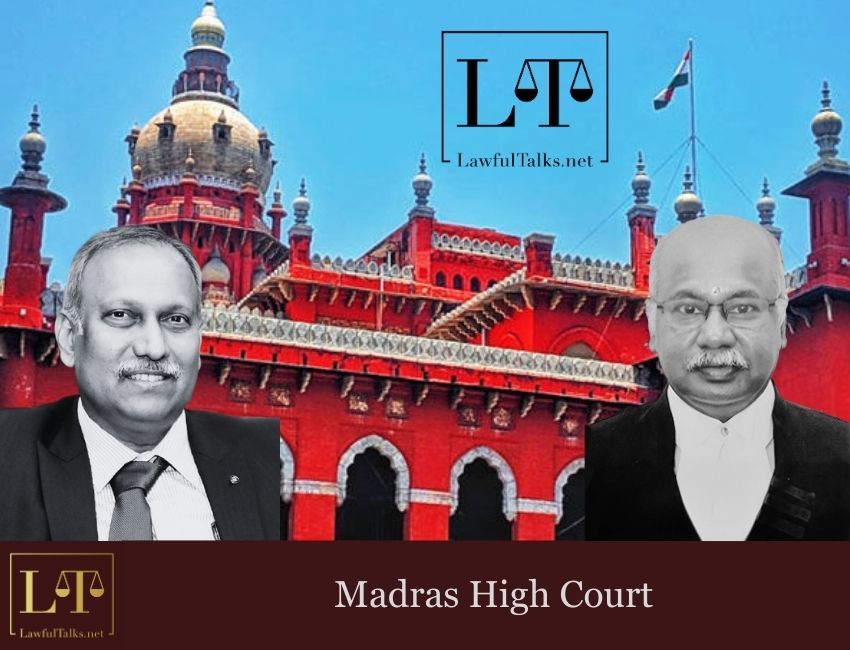Allahabad HC Sets Aside Afzal Ansari's Conviction, Allows Him to Continue as MP

Madras High Court Upholds Prisoner Rights: Orders Investigation into Alleged Abuse and Emphasizes Humane Treatment and Accountability in Prisons

On October 29, 2024, the High Court of Madras, comprising Justice S.M. Subramaniam and Justice V. Sivagnanam, brought out the critical need to protect the rights of prisoners and hold prison authorities accountable.
This case involved disturbing allegations of abuse and forced labour inflicted on Sivakumar, a life convict. The Judgement stressed that the purpose of incarceration is reformation, not exploitation, and that any abuse of authority by prison officials is a severe breach of justice.
The Court stated, “Prisoners are neither slaves nor are they to be tortured in such inhuman ways to punish them for their crimes," setting a standard for humane treatment within the criminal justice system.
The petition was filed by Sivakumar’s mother, who sought judicial intervention after learning that her son, initially housed in the Central Prison, Vellore, had been assaulted by prison wardens and subjected to solitary confinement without medical treatment. She further alleged that Sivakumar had been forced to perform household chores for the Deputy Inspector General (DIG) of Prisons at her residence, a violation of prison regulations.
According to Rule 472 of the Tamil Nadu Prison Rules, 1983, “convict prisoners can be utilized for certain specified works under the written orders of the Superintendent”, a rule that was ignored in this case. The Court took these allegations seriously, noting that Sivakumar’s statement and evidence pointed to prima facie abuse and violations of rights.
The Court ordered the Chief Judicial Magistrate of Vellore (CJM) to investigate the conditions under which Sivakumar was being held. The subsequent report, described as one that “shocked the conscience of this Court," revealed that prison authorities had indeed exploited Sivakumar and subjected him to harassment based on unproven allegations of theft. The CJM found that “the prisoner has narrated the events, which cannot be prima facie disbelieved”, thus solidifying the credibility of Sivakumar’s account.
Following this, a criminal case was registered on September 6, 2024, and departmental disciplinary actions were initiated against implicated prison officials. “The Investigating Officer found that employing the convict prisoners for domestic works inside the residences of Prison Authorities is strictly prohibited”, and any abuse of authority is an offense requiring stringent action.
The Court discussed the broader implications of such abuse, focusing on the vulnerable position of prisoners who are subject to the authority of prison officials. “The convict prisoners inside the prison are in a disadvantageous position… therefore, any kind of exploitation by the Prison Authorities cannot be subjected to normal view, but serious actions are highly warranted”.
The Court further stressed that “nobody can unduly exercise power over another individual in this free world” and noted that abuse within the prison system threatens to undermine the ethos of criminal justice. The Court asserted that prisoners’ loss of liberty is punishment enough, and “to strip him of his other basic necessities, rights, and eligibilities is a gross abuse of power and cannot be viewed leniently”.
Affirming reformative justice principles, the Court remarked that “the main reason for having prisons is to restrict the fundamental right to liberty of the prisoner by restricting his movement and preventing him from further committing crimes”, while at the same time facilitating reformation.
Recognising the need for a systematic response to prevent abuse in the future, the Court directed the Superintendent of Police, CB-CID, to continue with the investigation and for the respondents to conclude departmental disciplinary proceedings as quickly as possible. “The respondents 1 and 2 are directed to conduct frequent and surprise inspections to ensure that the prisoners are not engaged / employed by the Prison Authorities in their residences for household works”.
Case Details: S.Kalavathi v. State, WP/19668/2024
Advocate for Petitioner: Mr. P.Pugalenthi
Advocate for Respondents: Mr.E.Raj Thilak Additional Public Prosecutor

Sonam Pandey
Law Student
Latest Posts
Categories
- International News 19 Posts
- Supreme Court 352 Posts
- High Courts 367 Posts





























































































































































































































































































































































































































































































































































































































































































































































